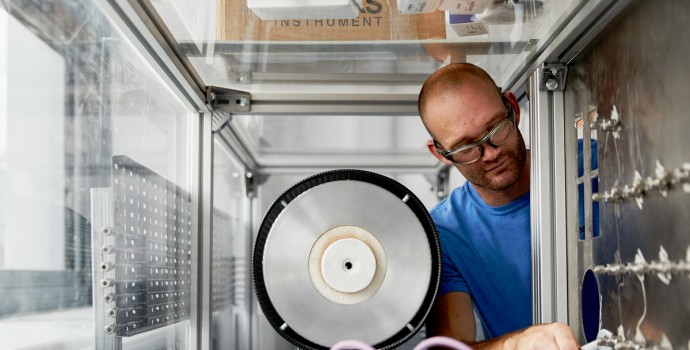
Engineering
Discover your research degree options, including areas of expertise for our academic supervisors.
Why you should join us
Our research degrees will help you advance or change your career, deepen your expertise, and expand your research and practical skills.
Our research areas
Discover our areas of expertise and browse our experts. We encourage you to discuss your research ideas with us – even if your topic is not listed.
- Advance functional materials and catalysis
- Advanced manufacturing
- Bioengineering
- Biosensors
- Communications
- Computer and network engineering
- Electrical and electronic engineering
- Electrochemistry
- Healthcare engineering
- Industrial applications and development
- Mechanical engineering
- Microbiology at interfaces
- Nanotechnology
- Product design
- Sensing and imaging
- Simulation, modelling and analysis
- Smart infrastructure and the internet of things
- Sports engineering and materials
- Surface engineering
- Sustainable engineering
- Transport engineering
- Wearable technologies
Qualifications you can study
Choose from one of these programmes:
- PhD Engineering — three years full-time, six years part-time
- Masters by Research — one year full-time, two years part-time
- MPhil — two years full-time, four years part-time
Find out about the research degrees we offer.
Start dates
Most of our students enrol in October. You can also join us in January and April.
Application information
Entry Requirements
To apply, you’ll need a first or 2.1 honours degree, or an equivalent qualification.
International students must have strong English language skills.
We welcome applicants from non-standard backgrounds. We’ll take subject knowledge, professional experience, publications, or other relevant achievements into consideration.
Find out more about our standard entry requirements.
Scholarships, fees and funding
Speak to us
Contact us
About this subject
For an initial discussion, contact Dr David Sawtell, our Doctoral College departmental lead, at d.sawtell@mmu.ac.uk
General admissions
For further information on the application process, contact the admissions team at pgradmissions@mmu.ac.uk


